

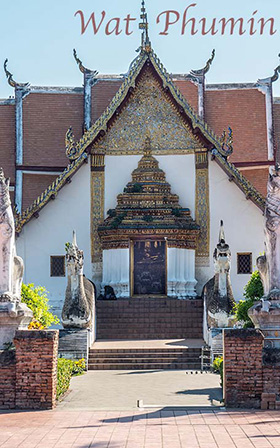
|
Wat Phumin, in Nan, has for entrances. In each one a small naga stair case leads to, on entry, a statue of a golden seated Buddha facing in the cardinal direction. The walls of the Wat are partially decorated with murals. |
Wat Phumin was built in 1596 by Prachao Chetabut Phrommin, governor of Nan, during the reign King SomdetpharNaraesuan. Originally named after him, the name over time morphed into Phumin. It is said by some to be the most beautful temple in Nan.
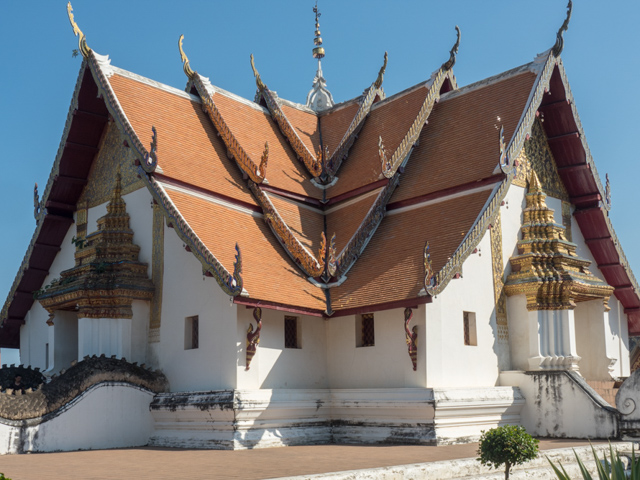
The Wat's main building serves as a combined viharn/ubosot. Its cruciform floor plan with four doors facing in cardinal directions approached by Naga stair cases is unusual.
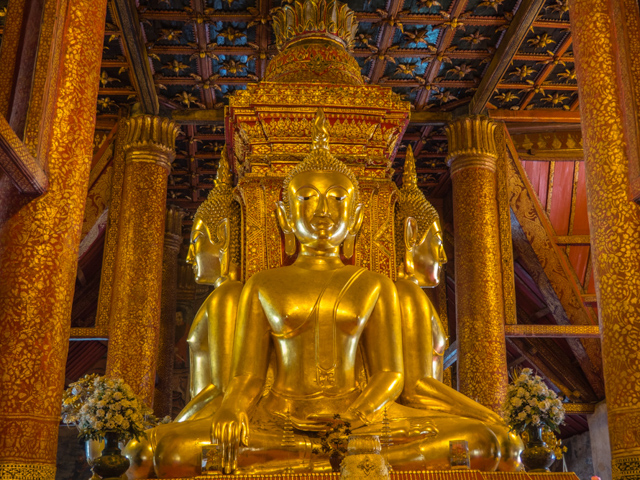
Entering though any door will present you to a seated Buddha with one hand touching the ground. This is the Bhumisparsha mudra, or Earth Witness position. The Buddhas are attached to a central pillar topped by a lotus. Surrounding the Buddhas are four heavy teak columns that support the roof.
The surrounding walls are decorated by murals. Northern Thai artist, Thit Burphan, painted them using vegetable pigments. It took him over 20 years in the latter part of the 19th century to complete. This was after a major temple restoration in 1867.
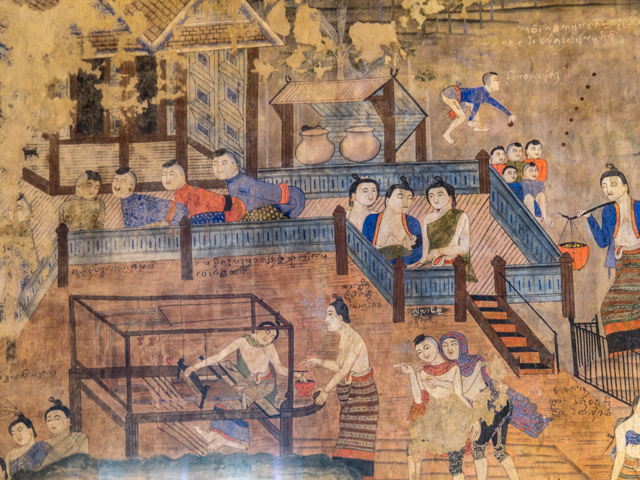
While some of them are of past lifes of the Buddha, their real value is the depiction of life in 19th century Nan. Some are faded, some are in still in good condition. Should they be restored. I don't know. Their current condition does convey an impression of a Wat that has been around for a long time rather than one that was completed in the last five years.
Outside the viharn but still in the grounds is a rotunda. Inside is a representation of Buddhist hell or Naraka. The newly dead are bought before the Death King, the one on the left, who weighs up the person's good and bad deeds before deciding punishment, if required.
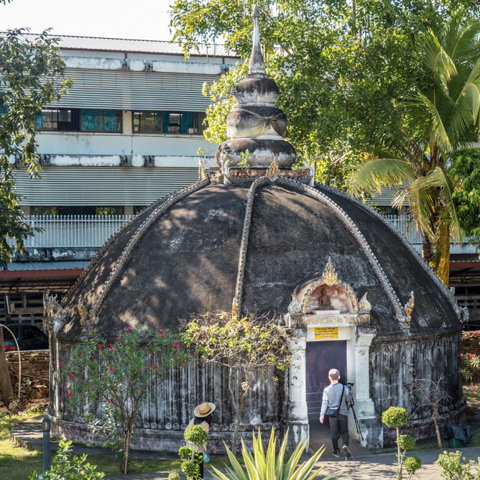
Punishments can included being boiled in oil, being place on a pole of thorns, being changed into an animal, a rabbit for jealous; a duck if the person is one who starts fights.
Damnation is not eternal, it only continues until all the bad karma is purged. That is comforting to know.
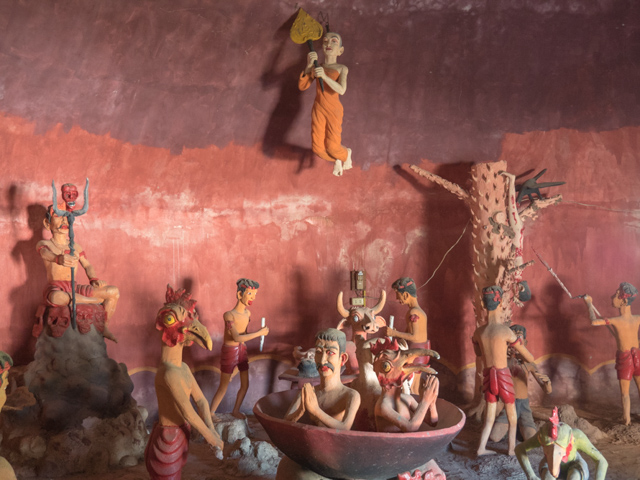
The most beautiful Wat in Nan. I am not sure about that as Nan is a city with many beautiful Wats. However, it is definitely worth a visit.